When I think back to my childhood, one of the dishes that always brings back nostalgic memories is Katsu Sando (カツサンド). This Japanese sandwich, made with crispy breaded cutlets (katsu) and soft, fluffy bread, was a staple in my household.
Growing up, tonkatsu was a common dish in our home. Whether it was chicken or pork, these breaded cutlets were a hit at dinner. But as much as I loved katsu for dinner, what I really looked forward to was having it the next day in the form of a katsu sando. Using leftover katsu to make sandwiches was an easy way to enjoy this delicious cutlet in a new and exciting form.
The beauty of a katsu sando lies in its simplicity. A typical katsu sando consists of a piece of katsu, usually pork or chicken, placed between two slices of shokupan (Japanese milk bread) – although really any type of bread will suffice. The bread is soft and slightly sweet, providing a perfect contrast to the crunchy and savory katsu.
Add a layer of my tangy tonkatsu sauce, and a bit of shredded cabbage for crunch, and you have a sandwich that’s both comforting and satisfying.

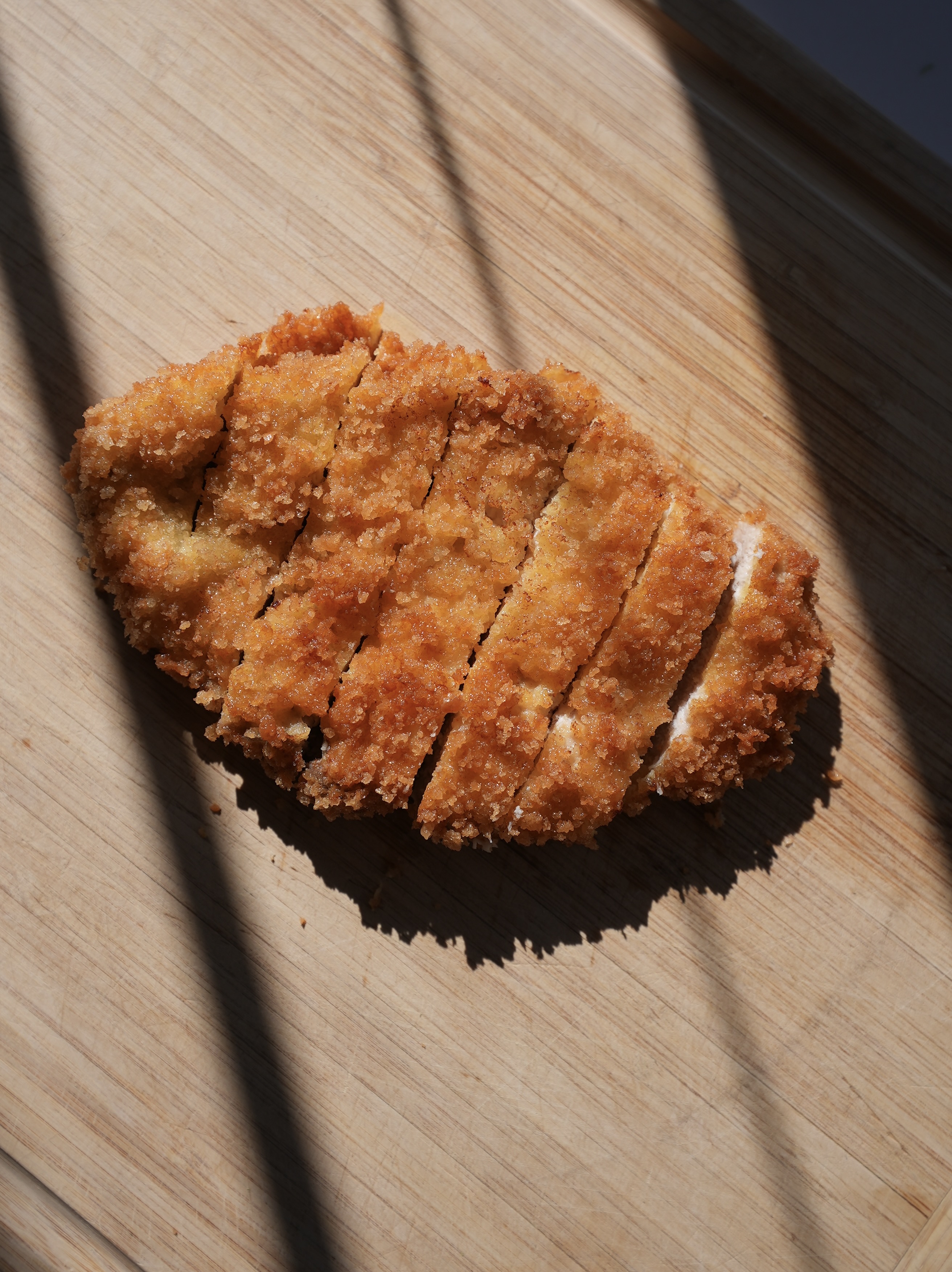
About Tonkatsu
Tonkatsu has its roots in the late 19th century during the Meiji era, a time when Japan was opening up to Western influences. Inspired by Western-style breaded and fried meat dishes, Japanese chefs adapted the concept using pork, which was not a traditional meat in Japan at the time. Over the years, tonkatsu has evolved to become a quintessential part of Japanese cuisine.
While classic tonkatsu on its own is delicious, there are several other fun variations to explore. Click on the titles of the dishes to be directed to my recipe:
- Katsudon: Katsu topped with a savory-sweet sauce and eggs, served over a bowl of rice.
- Katsu Curry: Katsu served with a generous ladle of Japanese curry and rice, combining two beloved dishes into one hearty meal.
- Katsu Sando: What I’ll teach you how to make in this blog post! As you know, this is a sandwich version of tonkatsu.
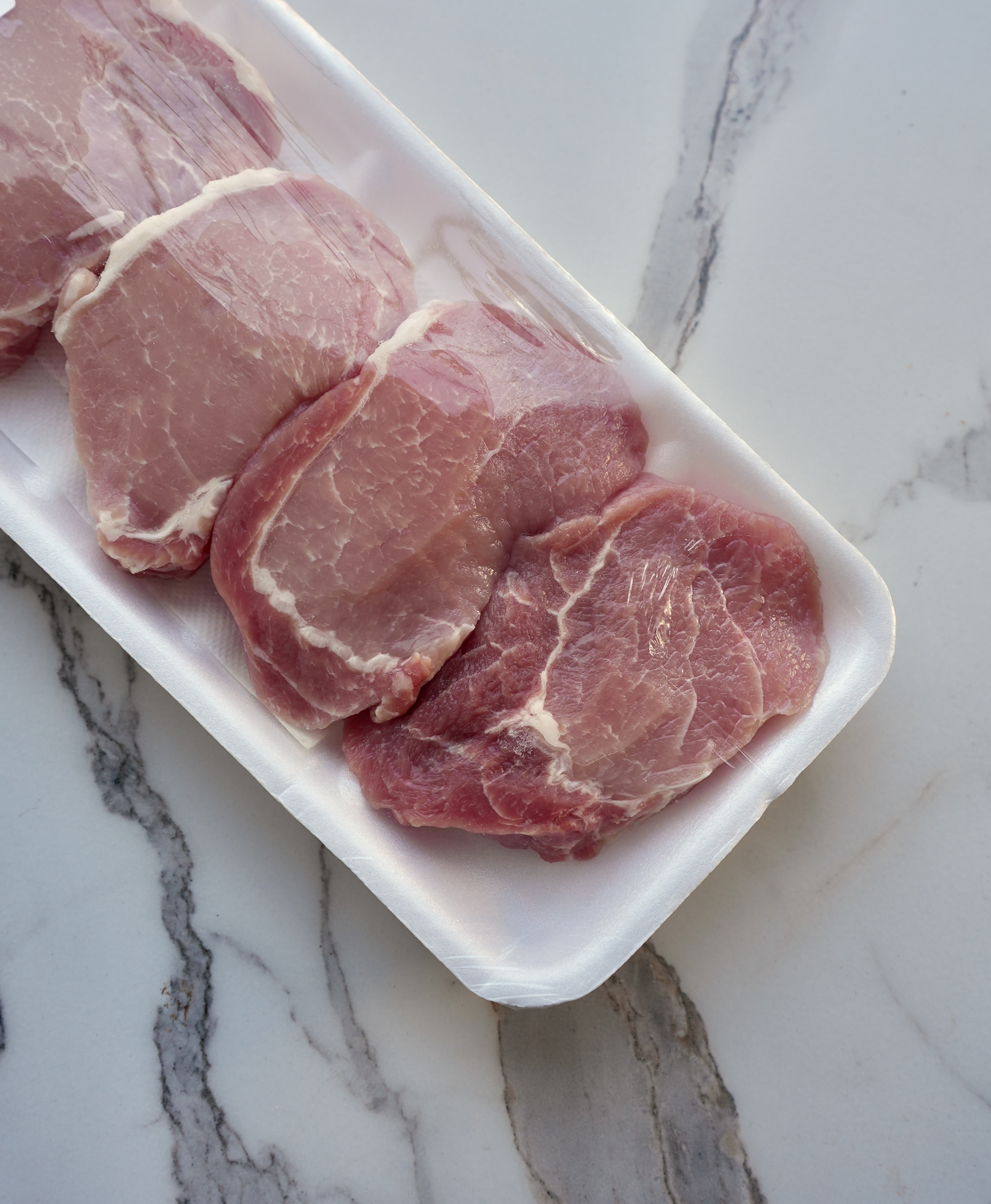
What Type of Pork to Use for Katsu
For tonkatsu, the best cut of pork to use is either pork loin or pork tenderloin. Pork loin is the more traditional choice, offering a good balance of meat and fat. If you prefer a leaner option, pork tenderloin works well too. Select boneless pork chops that are at least ¾ – 1 in. thick.
Before frying, the pork should be pounded to an even thickness (around ½ inch) using a meat mallet or rolling pin. This helps it cook through evenly while keeping the meat tender. If the tonkatsu is golden and crispy on the outside but still slightly undercooked inside, just pop the sliced pieces into the microwave for a minute to finish cooking without over-frying. This ensures the pork stays juicy while still achieving that crispy crust.
Can’t eat pork? No problem! Substitute chicken for chicken katsu or beef for gyukatsu instead. Or tofu for a vegetarian katsu!
What is Panko?
Panko is Japanese for “breadcrumbs.” However, unlike traditional breadcrumbs, which are made from finely ground dried bread, panko is made from crustless bread that is baked using electric current, creating large, flaky crumbs.
This unique texture results in a coating that fries up extra crispy and light, making it the perfect choice for dishes like tonkatsu, ebi fry, and korokke. Because panko absorbs less oil than regular breadcrumbs, it creates a less greasy, crispier crust that stays crunchy longer.
Recently, I came across sourdough panko, and it has been amazing to use for my katsu! It’s a great alternative for those looking to experiment with different flavors while keeping the same signature crunch.
I’ll link the sourdough panko brand here in case you want to try it out! Regular panko is below:
Shokupan: Japanese Milk Bread
Shokupan, or Japanese milk bread, is a staple in Japan’s culinary culture. Here are some of its key characteristics:
- Square Shape: Shokupan is typically baked in a square loaf pan. This shape makes it ideal for sandwiches.
- Soft and Fluffy Texture: Thanks to the addition of milk and cream, shokupan has a very pillowy texture.
- Slightly Sweet Flavor: A touch of sugar in the dough gives shokupan its signature mild sweetness, making it perfect for both savory and sweet applications.

Katsu Sando (カツサンド)
- Total Time: 42 minutes
Description
Katsu sando is a delightful Japanese sandwich featuring crispy breaded cutlets, usually pork or chicken, nestled between soft slices of shokupan with a layer of tangy tonkatsu sauce.
This recipe shows how to make tonkatsu if you want to bake it in an oven (which I prefer for katsu sando, in order to use less oil and get thick, perfectly-cooked cutlets), however, if you want to deep-fry, or even air fry it, follow my recipe here.
Ingredients
- 4 pork loins, boneless (pound your pork loins till be they are about 1/4–1/2 inch in thickness)
- Salt and pepper, to taste
- 1/2 cup all-purpose flour
- 2 eggs, beaten
- 1 1/2–2 cups panko
- 8 slices of bread (I used my homemade shokupan, also known as Japanese milk bread, but any type of bread works!)
- Katsu sauce (for dipping, or view my homemade recipe below)
Homemade Katsu Sauce:
Just mix and enjoy!
- 1/2 cup ketchup
- 4 tablespoons Worcestershire sauce
- 3 tablespoon oyster sauce
- 1 tablespoon brown sugar
Optional Toppings:
- 1–2 tomatoes, sliced (I recommend a beefsteak variety, but any will do!)
- Shredded cabbage or my homemade cabbage slaw recipe below
- Sunny-side up eggs
- Microgreens
Cabbage Slaw:
Just mix and enjoy!
- 2 cups purple cabbage, shredded
- 2 cups green cabbage, shredded
- 1 cup carrots, julienned
- 1 tablespoon dijon mustard
- 2 tablespoons kewpie mayo
- 1 tablespoon apple cider vinegar
- Salt and pepper to taste
Instructions
- Begin by preheating your oven to 380°F (193°C).
- Toast your panko breadcrumbs in a pan over medium-high heat with a drizzle of cooking oil. Cook until it is browned.
- Prepare the dredging station by placing flour, beaten eggs, and toasted panko in separate plates or bowls.
- Start by seasoning your pork loins with salt and pepper on both side. Dip each of the pork loins into the flour, ensuring they are fully coated, then dip them into the eggs, and finally into the toasted panko. Make sure the pork loins are thoroughly coated with the panko.
- On a baking sheet sprayed with cooking oil, place your breaded pork cutlets and spray with more cooking oil. Bake for 22-23 minutes, or until the pork loins are cooked.
- While the tonkatsu is baking, prep your sandwich by toasting the bread according to your preference. Traditional katsu sandos don’t have crust, but it’s up to you if you want to cut it off or not.
- On one slice of bread, place a large spoonful of the katsu sauce, followed by a couple slices of tomatoes, and a cup of thinly sliced cabbage.
- Once the tonkatsu has finished baking, place one tonkatsu on top of the sandwich, followed by another spoonful of the katsu sauce. Finally, top with another slice of toast and enjoy!
- Prep Time: 20 minutes
- Cook Time: 22 minutes
Nutrition
- Serving Size: 4

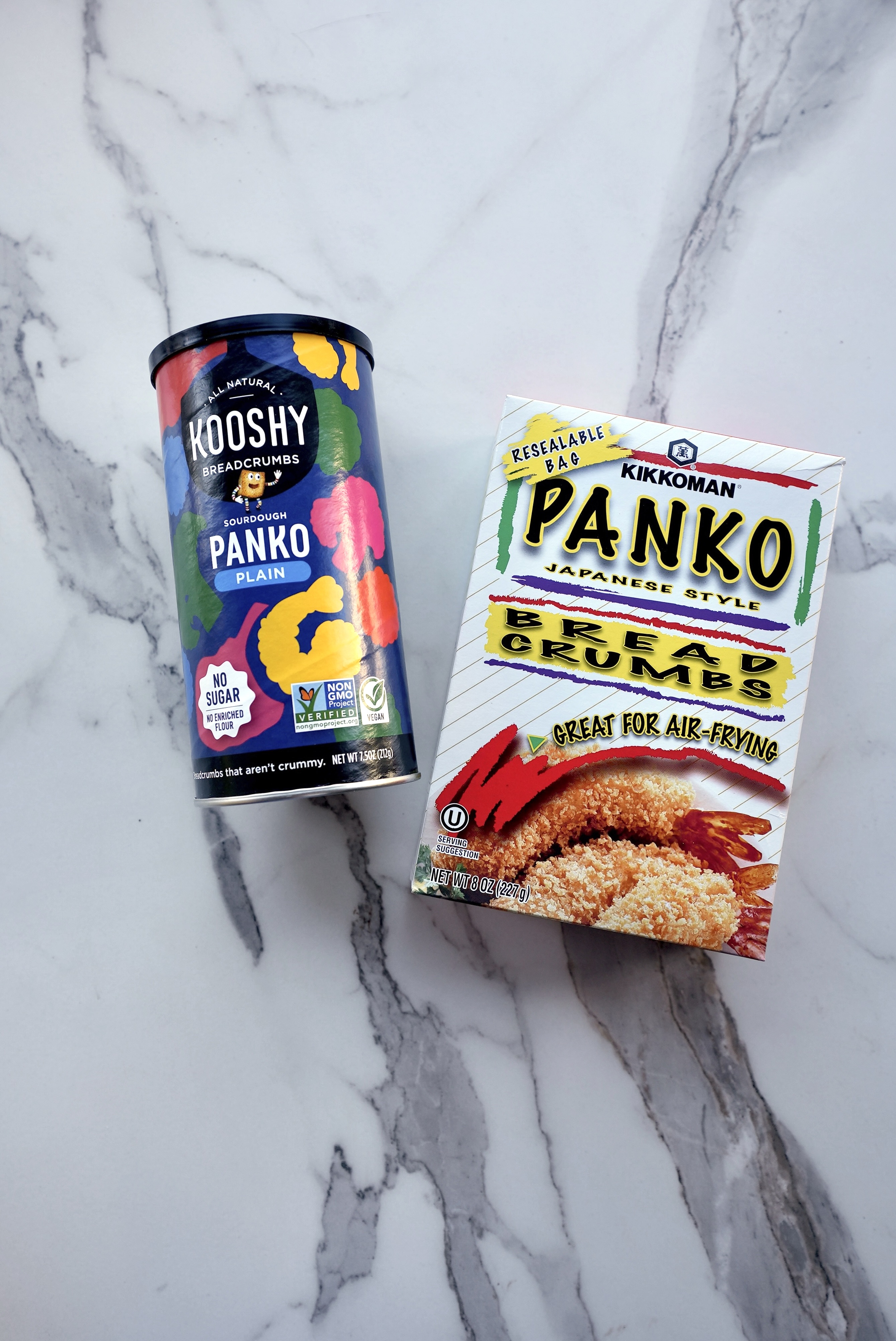





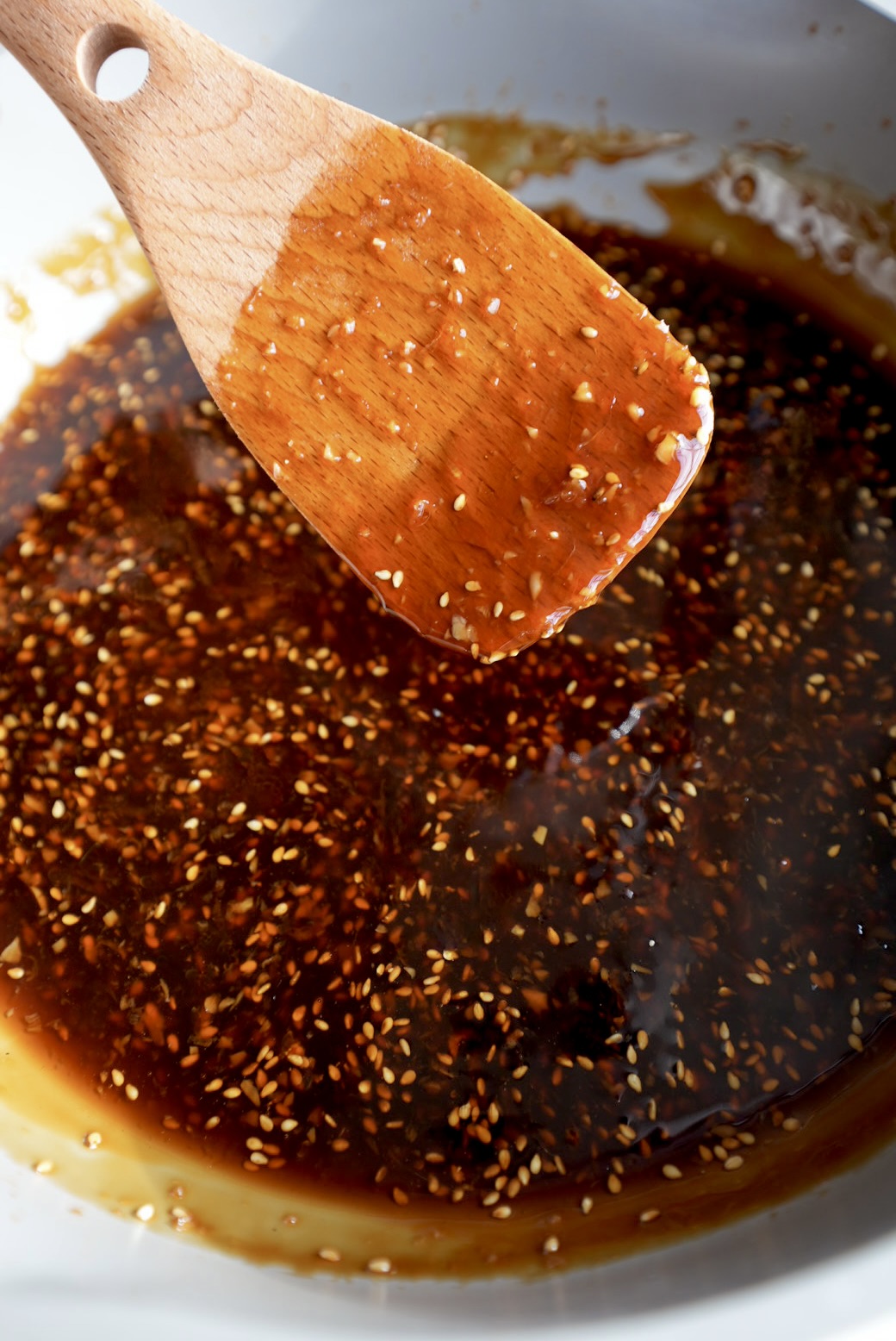
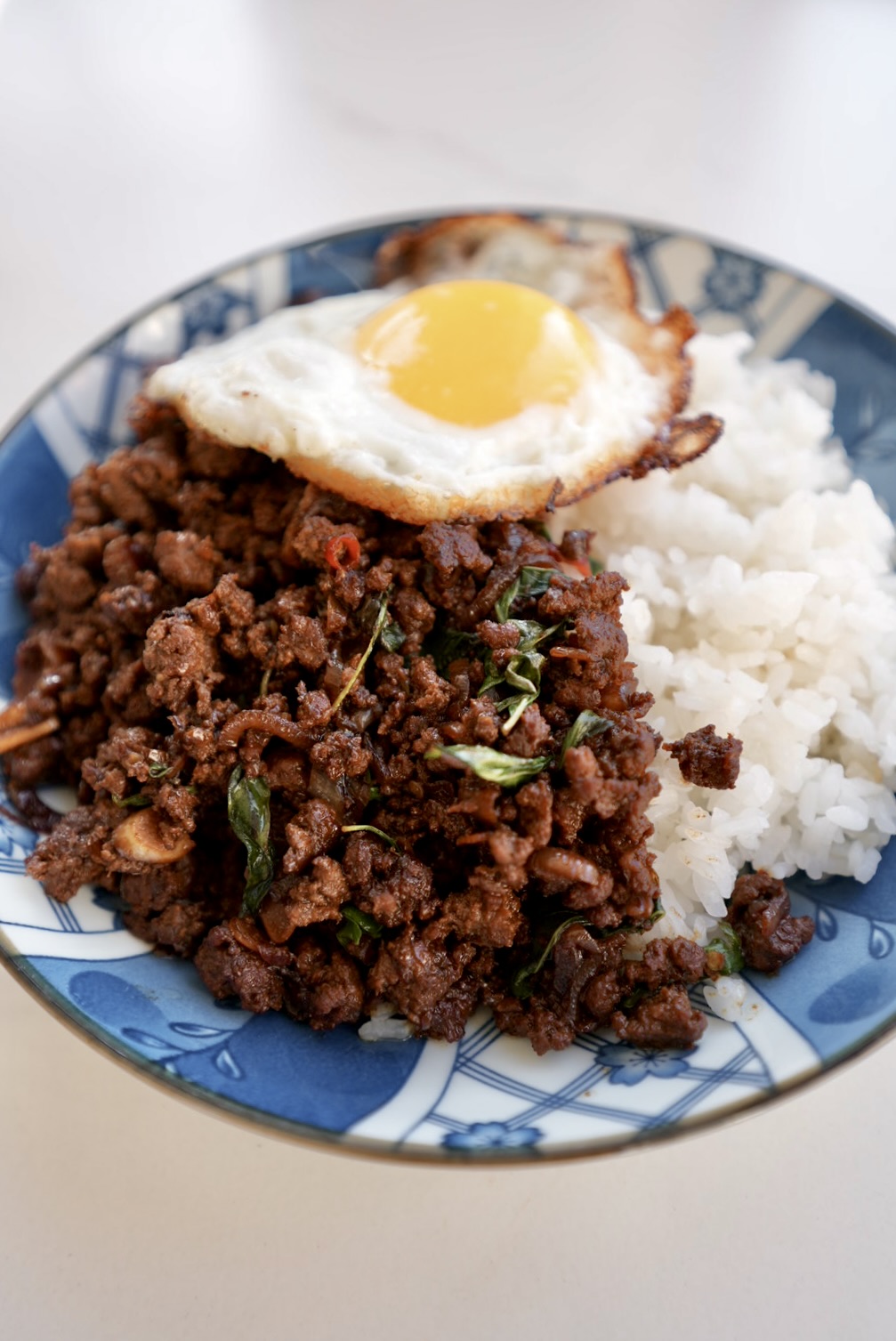
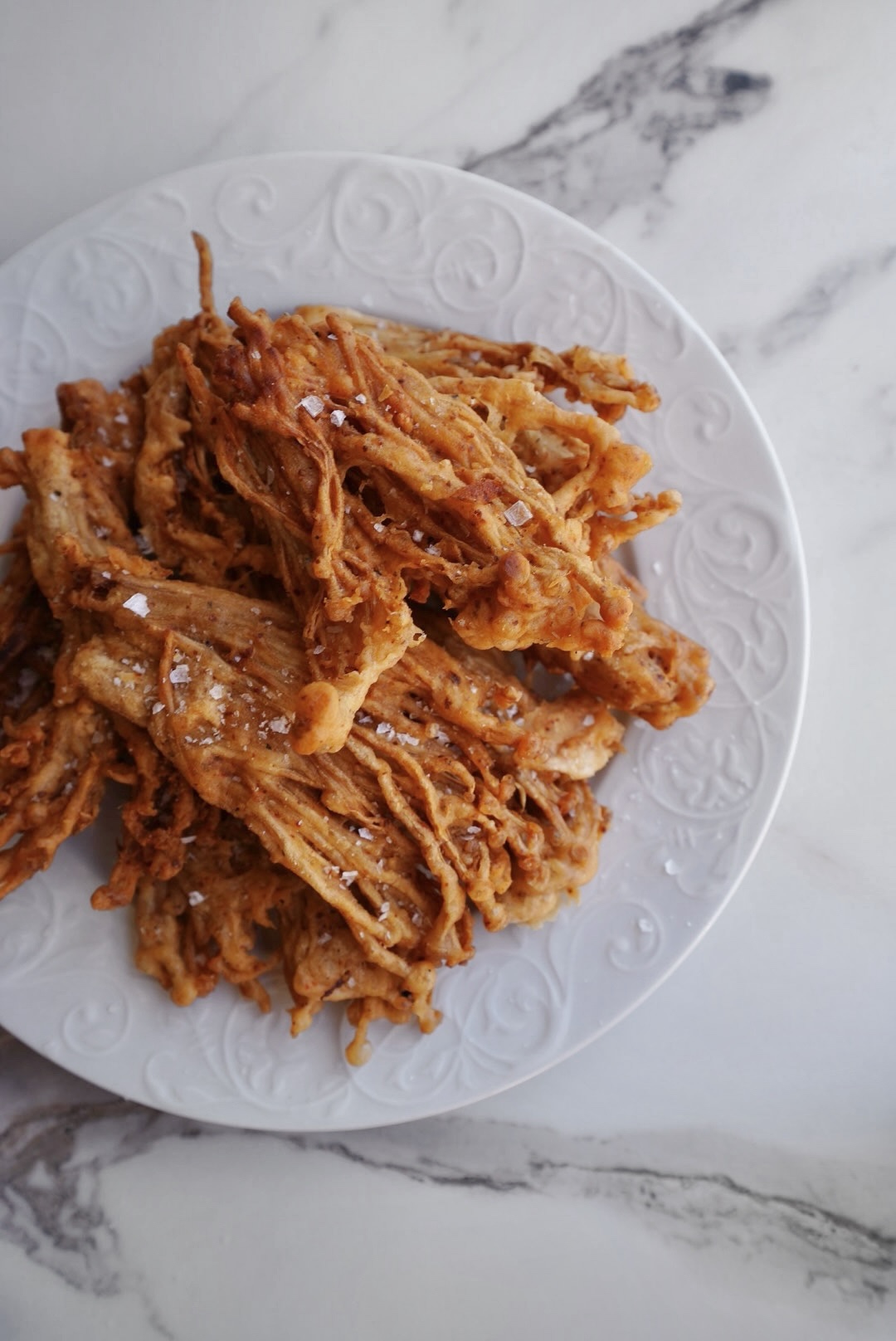
Whenever I have leftover Katsu this sandwich is a must!
Agreed! 🙂 thanks Elena!
That cabbage layer made it feel less heavy and added great crunch.
The cabbage is so good with it. Glad you made it! 🙂